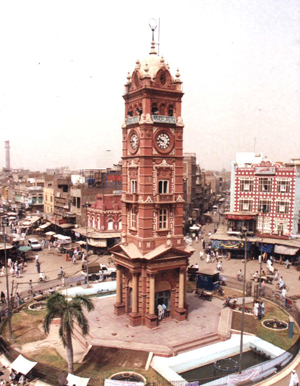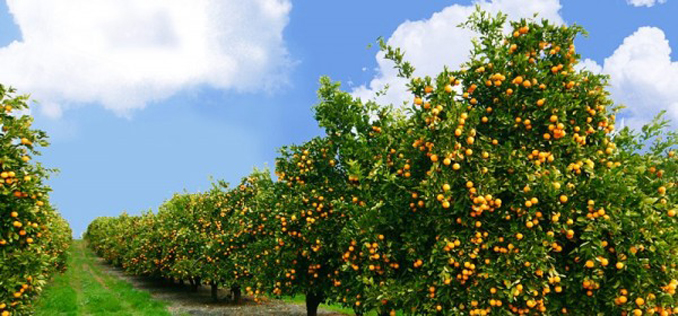Written by: Amna Javed
Posted on: June 05, 2015 | 
An aerial view of Faisalabad's famous Clock Tower

After becoming part of Pakistan, the small town of Lyallpur expanded into a dynamic industrial city. With a population exceeding the one million mark, the facilities of health and education have also been extended. Faisalabad’s prime location, at the junction of all road and rail connectivity, has played a vital role in its expansion and development of trade and economy. The city is also one of the largest contributors to Pakistan’s GDP, averaging at about 20% of the total GDP.
With the setting up of a dry port, the volume of trade increased manifold, as the city is a major producer of superphosphates, cotton and silk textiles, hosiery, dyes and industrial chemicals. Due to an extremely large number of production units, there are ample employment opportunities for the locals, and with increased connectivity through the economic corridor, these opportunities will increase further.
Faisalabad offers a variety of transport facilities to get in and around the city. The diverse public transport ranges from auto-rickshaws and buses to railway. A new Metro Bus System has also been planned to ease the traffic congestion in the city. An international airport on the outskirts of the city also caters to flights to and from the Middle East.

Boasting a diverse culture, Faisalabad houses numerous places of attraction for tourists. The Faisalabad Clock Tower, more commonly known as the ‘Ghanta Ghar’, is one of the oldest monuments from British India that is still standing in its original form. The markets surrounding this clock tower form eight roads that have been designed to look like Union Jack. Each of the market has been given a special name and is renowned for certain goods. ‘Montgomery bazaar’, the most famous out of these markets is famous for yarn and raw cloth trading. Besides these, Jinnah Garden (also known as ‘Company Bagh’), the oldest and central park of the city, is also a famous tourist attraction. The monument of Sir Charles James Lyall is also situated here. In addition to these, Faisalabad’s first heritage museum, the Lyallpur Museum, contains an art gallery that has preserved the memories of the ancient and modern culture of the city of Faisalabad, and is an important stop for those researching on the history of the city.
With international food chains opening their doors in Faisalabad, the city now also offers a wide variety of cuisines and a luxurious fine-dining experience. ‘Samosas’ are the most famous and commonly eaten snack in the city. The snack is so popular that near the Clock Tower, a separate square (called the ‘Samosa Chowk’) only offers samosas with a variety of sauces.

You may also like: